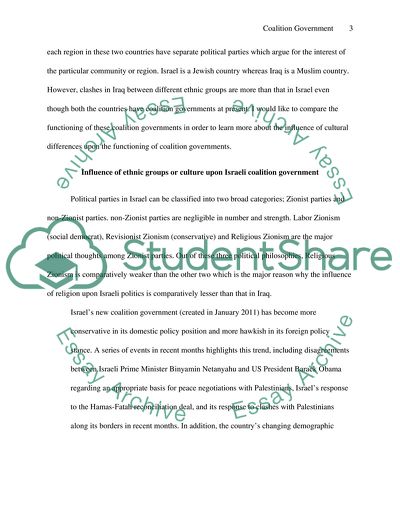Cite this document
(The Influence of Ethnic Groups or Culture upon Israeli and Iraqi Coalition Governments Case Study Example | Topics and Well Written Essays - 1500 words - 1, n.d.)
The Influence of Ethnic Groups or Culture upon Israeli and Iraqi Coalition Governments Case Study Example | Topics and Well Written Essays - 1500 words - 1. https://studentshare.org/history/1761779-comparison-of-israeli-and-iraqi-coalition-parliamentary-governments
The Influence of Ethnic Groups or Culture upon Israeli and Iraqi Coalition Governments Case Study Example | Topics and Well Written Essays - 1500 words - 1. https://studentshare.org/history/1761779-comparison-of-israeli-and-iraqi-coalition-parliamentary-governments
(The Influence of Ethnic Groups or Culture Upon Israeli and Iraqi Coalition Governments Case Study Example | Topics and Well Written Essays - 1500 Words - 1)
The Influence of Ethnic Groups or Culture Upon Israeli and Iraqi Coalition Governments Case Study Example | Topics and Well Written Essays - 1500 Words - 1. https://studentshare.org/history/1761779-comparison-of-israeli-and-iraqi-coalition-parliamentary-governments.
The Influence of Ethnic Groups or Culture Upon Israeli and Iraqi Coalition Governments Case Study Example | Topics and Well Written Essays - 1500 Words - 1. https://studentshare.org/history/1761779-comparison-of-israeli-and-iraqi-coalition-parliamentary-governments.
“The Influence of Ethnic Groups or Culture Upon Israeli and Iraqi Coalition Governments Case Study Example | Topics and Well Written Essays - 1500 Words - 1”. https://studentshare.org/history/1761779-comparison-of-israeli-and-iraqi-coalition-parliamentary-governments.


